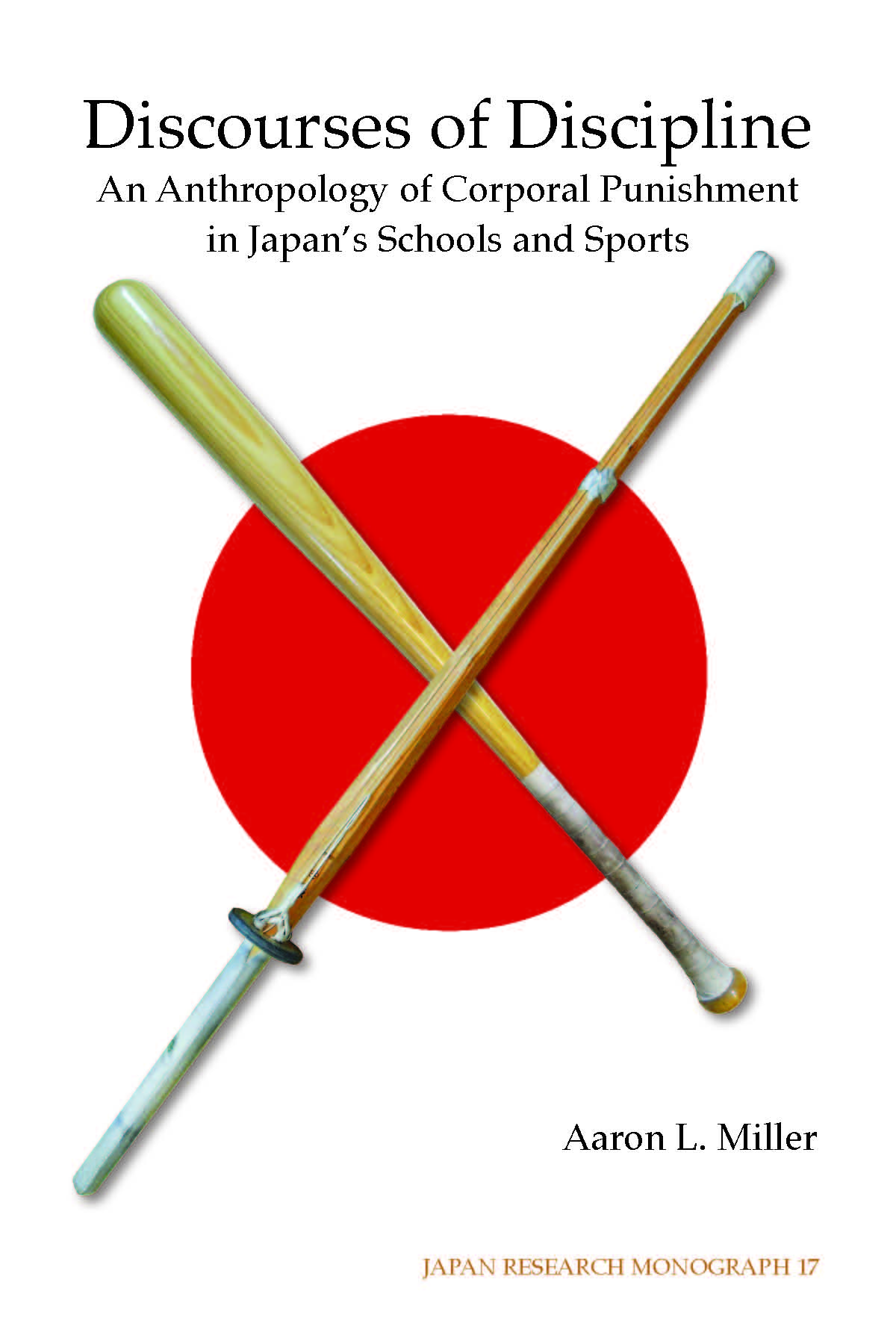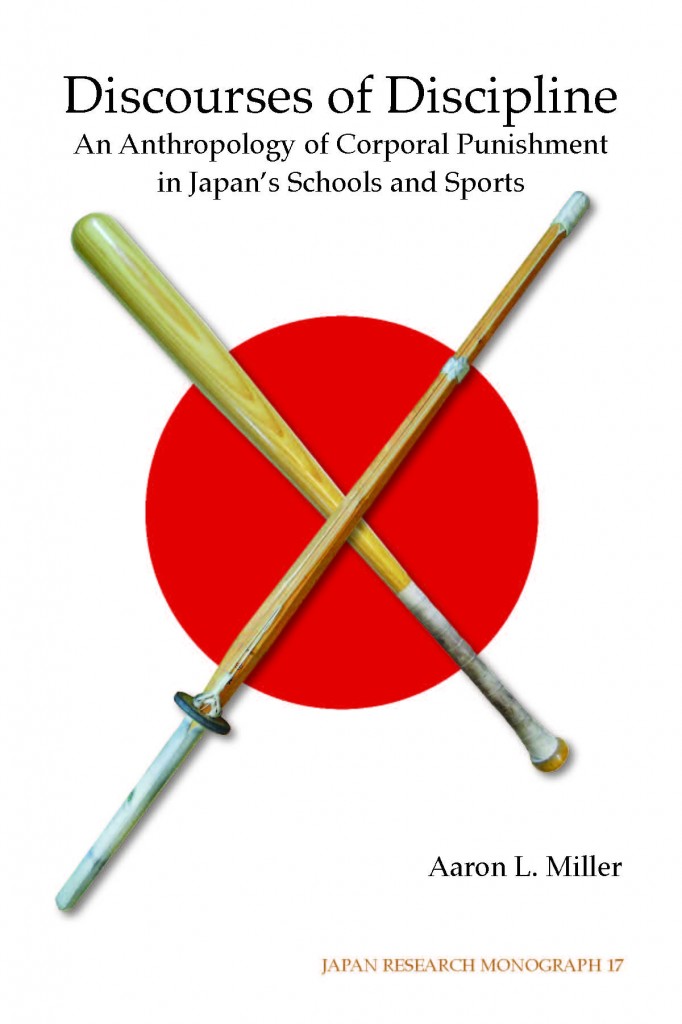Tokyo – Angela Kubo
Tatakinaousu (叩き直す)=”Beat up someone until you fix them”
Karada de Oboeru (体で覚える)=”Remember with your body”
The Japanese language is rich with expressions and words that extol the virtues of corporal punishment aka taibatsu (体罰) but the penchant some older Japanese have for slapping their younger counterparts has resulted in damages to Japan’s public image and its Olympic bid. In schools, in companies, and especially in the world of professional sports—taibatsu is becoming a problem too big to smack down.
In September, 2012, 15 female judo athletes filed a written complaint to the All Japan Judo Federation stating that their coach, Ryuji Sonoda, slapped, kicked, beat them with bamboo sticks, and forced them to compete injured in the run-up to the Summer Olympics in London. The federation refrained from launching a full investigation and retained Sonoda as head coach. When the athletes took their complaint to the Japanese Olympic Committee, which was busy with preparations for Japan’s bid for the 2020 Olympics, in December only a few women were interviewed about the abuse in January. It was only until their story had received media attention that Sonoda stepped down on February 1st, bringing worldwide attention to Japan’s problem of physical punishment in professional sports at a time when Tokyo is bidding to host the 2020 Olympics.
On its official website the Japanese Olympic Committee stated that it found Sonoda’s actions “most regrettable” and that violence in sport “directly contradicts the values of Olympic Movement.”
Physical abuse is not limited to judo. In 2007, a 17-year-old sumo wrestler died after a training session. It was later revealed that he had been abused by the stable master and several other sumo wrestlers.
Over the years there have been other cases of corporal punishment or taibatsu (体罰) as the Japanese term it. More recently the 17-year-old captain of the Sakuranomiya High School basketball team in Osaka committed suicide after being slapped 30 to 40 times by his coach during practice the day before.
“Taibatsu is seen as something necessary to teach the players discipline and make them better athletes ,” said Mr. Kosuke Jimbo, an employee for a Japanese sports channel.
Kosuke had experienced taibatsu himself when he played for a local soccer team for elementary school students in the 1990s. His coach would often yell at the players and strike or kick some of them, even in the sight of the children’s parents.
“My mother was fine with it so long that he only hit me in front of her,” he said. “All the teams under him won their games, but as soon as he left we started losing all of our games.”
He said in that in the end the parents who forced the coach out of the team because they disagreed with his coaching style asked him to come back so that he could improve the performance of the players.
Aaron Miller, an assistant professor at Kyoto University, had been doing research on taibatsu for over seven years. His book on the subject, Discourses of Discipline: An Anthropology of Corporal Punishment in Japan’s Schools and Sports, will be published by UC Berkley this year.
He said that some people in Japan consider corporal punishment a very necessary tool for education and discipline.
It is for this reason that this problem considers to persist. However, as Aaron Miller argues, there are other reasons that account for the continuation of this problem.
In 2004 the Japanese Ministry of Education stopped taking statistics on taibatsu. When Miller had asked the Ministry why they discontinued the practice, they told him it was because the term taibatsu, which literally means “punishment of the body”, was too ambiguous and difficult to define. Although the Ministry of Justice also takes statistics on taibatsu, their numbers only consider the most extreme and serious cases that were designated as crimes. In 2012, 370 cases were reported, a small slice of the total amount of taibatsu-related incidents that must occur each year. It was however the highest number recorded since 2001 when the Ministry of Justice started to take these statistics….
The ambiguity of the term, taibatsu, lies in its origin. Fujimaro Tanaka, a statesman and educator during the Meiji period who traveled with the Iwakura Mission to gather information on western education systems to bring back to Japan, coined the term as a literal translation of corporal punishment. Since then, there have been various attempts to define the term, but no definite definition had been picked up.
For this reason, the Ministry had stopped taking statistics on taibatsu. This action, Aaron Miller argued, has taken the issue off the national radar.
“As a result, corporal punishment was allowed to continue in Japanese schools unmonitored,” Miller said.
Another reason why taibatsu continues to exist is the pressure to win, which may result in a coach physically abusing the players. In professional sports, in particular, a lot of money is at stake, which further increases this pressure. Within many Japanese schools, sports activities are seen as a major part of school life, with some students even applying to a particular high school because it has a strong sports team.
With the recent suicide of the basketball captain in Osaka, the LDP government has looked into reforming Japan’s education system. On February 25th Prime Minister Shinzo Abe’s Education Panel unveiled a set of proposals that will soon be submitted to the Diet designed to combat bullying and prevent corporal punishment. These guidelines called on coaches and educators to encourage the mental and physical growth of youth while deemphasizing winning.
However, these measures may not stack up against the strong values that people put on winning and competition. It’s a problem that is seen not only in Japan, but all over the world. Athletes devote themselves to becoming the best, winning at all costs, with those who succeed being awarded with fame, recognition, and money. Losers and the coaches of losers are reviled and exiled.
“Basketball was all he had. Basketball was what made him special,” said Kosuke Jimbo when asked about the recent suicide of the basketball team captain in Osaka. “Quitting would be forfeiting his identity.” In Japan, corporal punishment is part of the cult of winning—especially in sports. However, is winning on the playing field worth losing basic human rights and protection from physical abuse? The Japanese tolerance for taibatsu will hopefully wane and recently those who over indulge in “body punishiment” are finding themselves being punished socially and under the law. The cost of winning shouldn’t result in people losing their dignity or their lives.
There are signs that the Japanese tolerance for corporal punishment may be waning. The Ministry of Education this week released new guidelines to all schools in Japan distinguishing between “corporal punishment” and “guidance.” It is acceptable “guidance” to physically separate a student from the person he or she is assaulting, pinning them down if necessary. However, the Ministry of Education warns that punching and kicking students is still unacceptable as is knocking down students. And of course, it is unacceptable “to throw pens at students and hit them.” It’s not clear if it’s a problem if the pen misses. The Ministry has not given any explicit instructions forbidding the hurling of ninja throwing stars, but this is also probably unacceptable.


As a long-term Japanese resident, and one who’s seen a fair share of coaching done at all levels of Japanese education, I have always felt it is exactly the culture of taibatsu and overwork that prevents Japan from competing at the level it could internationally. It is very rare that we get an Ichiro who is able to come out of 6 years of junior high + high school and still actually enjoy the game.
I don’t remember his name, but recently on TV I saw a Japanese baseballer commenting in response to Osaka mayor pretty boy Hashimoto’s early remarks about how sometimes tiabatsu makes people stronger and instills in them the spirit to win. He said nothing good ever comes from physical punishment – when he was in high school he saw it all the time and all that it ever does is makes the player hate the coach and respect them less, and eventually hate the game. From my own personal experiences I would agree with that 100%. So we have less good players in Japan than we should, because surely some of the better kids get driven out of sports by overly harsh coaches.
Thanks for taking to the time to respond. I agree with you as well. Physical punishment and overwork are rarely productive in the long run. Hashimoto is a twerp and the Japanese baseballer makes a lot more sense.
[…] Corporal Punishment Getting Punished in Japan; Don’t throw pens at the kids! (Japan Subculture Research […]
Very interesting article, thank you.
Being a South African and having gone to an all boys school, I myself have witnessed and recieved corporal punishment.
It is completely illegal here. The thing is that it’s taken on some what of a cult nature, meaning hush hush. Of course there is a psychological theory to that, however, that’s not the point here.
I do think that it’s possible to take it to far, undoubtedly. Sometimes though, I think that punishment is necessary. Not beating, but just a reinforcement that what someone has done is wrong.
I’m thinking of going to teach English in Japan after completing my BA in psych. I’ve seen, after researching a bit, that there are some trends in Japan that I find completely unacceptable.
Specifically referring to kancho and public groping(not consensual).
Back to the point, I agree, they are ruining the sports for the athletes and bringing a stigma with it. There are many other ways to encourage people and to optimize performance.
Look forward to Japan though, I’m completely infatuated.
It’s a shame you don’t have a donate button! I’d most certainly
donate to this excellent blog! I suppose for now i’ll settle
for book-marking and adding your RSS feed to my Google account.
I look forward to fresh updates and will share this blog with my Facebook group.
Chat soon!
Hello. My name is Angela Kubo. I’m an assistant editor for Japan Subculture. Thank you so much for reading us.
We actually have a donate button. If you go to the main page of our website, it’s on the right-hand side near the top of the page.
Please e-mail me at angelaerikakubo@gmail.com if you have any questions.
[…] “Corporal Punishment Getting Punished in Japan; Dont throw pens at the kids!” Japan Subculture Research Center, 15 March 2013. […]
[…] extent of even everyday disciplining seem even harsher to international audiences than the locals (http://www.japansubculture.com/corporal-punishment-getting-punished-in-japan-dont-throw-pens-at-the-…😉 . However, Japanese parents have become more indulgent in recent years, to the point where some of […]
[…] http://www.japansubculture.com/corporal-punishment-getting-punished-in-japan-dont-throw-pens-at-the-…, viewed on September 11, 2017 […]
Any teacher to taibatsu, as Corrink said, deverse more than death, more than pain, more than torture, more than anything we understand.
Other hand, why students are not even dare of revergeing on teachers while under such anti-humanism punishment?